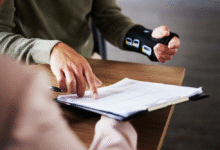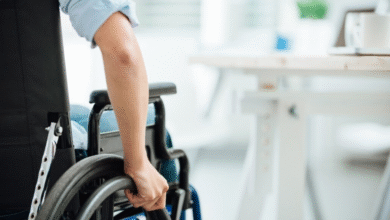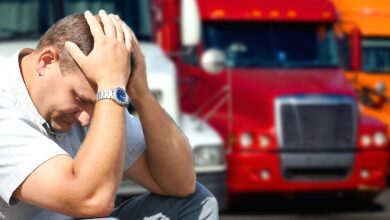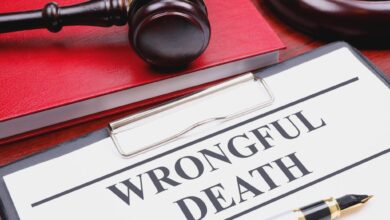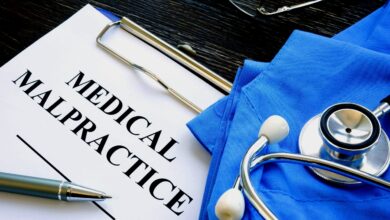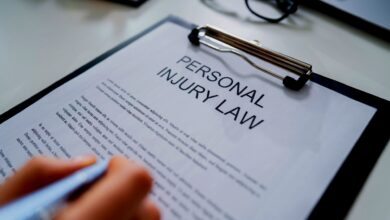How to Report a Drunk Driver to Keep the Roads Safe
In this article you will learn how to report a drunk driver to keep the roads safe. It is important to consulting with a DUI accident victim lawyer.
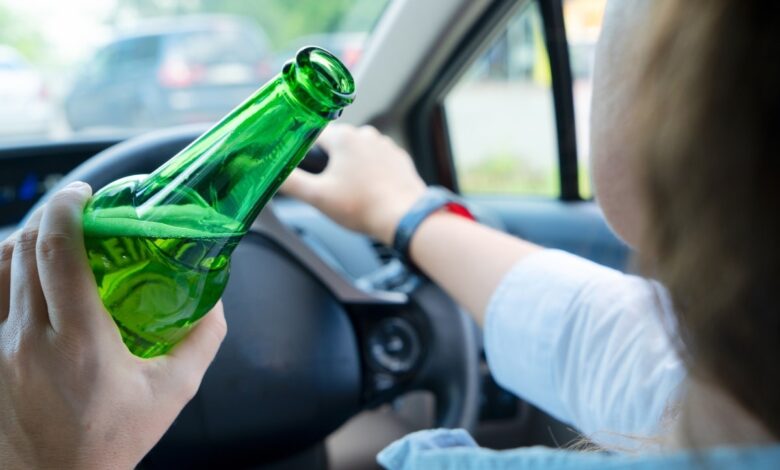
As you’re traveling down the street, you see a car making strange movements or swerving between lanes. “Is this driver drunk?” you ask yourself. What ought one to do in this circumstance? Unusual or erratic vehicle movements may indicate impaired driving and intoxicated drivers pose a major risk to public safety. Therefore, you should phone 911 as soon as you can to report the possibly intoxicated motorist.
Reporting a suspected intoxicated driver could help avert a potentially fatal collision. Dealing with risky driving practices could save lives, even if it turns out the driver is not intoxicated. Families who are waiting for their loved ones to return home safely may find that a minor inconvenience can have a significant impact.
How To Safely Report A Drunk Driver
Naturally, it is alarming to come across a driver who appears to be intoxicated. It is even more crucial to report them right away before a DUI accident happens because of the possible risk they pose. What you need to know in order to report a drunk driver properly is as follows:
Recognize The Signs Of Drunk Driving
Spotting a drunk driver takes keen observation. Alcohol damages motor coordination and perceptions, which results in risky driving practices like:
- Drifting erratically or weaving in and out of lanes.
- Varying in speed and deceleration without apparent cause.
- Responding slowly to changes in traffic and traffic signals.
- Too early, too late, or without any obvious reason to brake.
- Striking immovable objects, such as curbs.
- Following too closely or tailgating.
- Driving without headlights, especially at night.
- Driving behaviors are not consistent with signaling.
These actions show that the driver is a danger to both themselves and other drivers on the road, even though they don’t always prove that the driver is intoxicated. The safest course of action is still to report the motorist.
Prioritize Your Safety
Reporting it right away is crucial, but your safety and the safety of your passengers should always come first. Keep a safe distance behind and don’t pass a drunk driver because they can be unpredictable. If you’re in front of them, think about stopping to the side of the road and avoiding them.
Never confront the motorist or try to stop them. The issue may worsen if you try to interrupt or get their attention. Let the authorities deal with it instead.
Call 911
Since drunk driving puts everyone on the road at immediate and serious risk, it is deemed an emergency, and dialing 911 is the best course of action. But wait before reaching for your phone because doing so while operating a motor vehicle could also endanger you. You can ask a passenger with a phone to dial 911 if they have one. If not, use a hands-free device to make the call or locate a safe spot to pull over.
Information You Need To Report A Drunk Driver
Giving the police precise and thorough information increases the likelihood that they will find and apprehend the intoxicated motorist before a collision happens. If you are unable to dial 911 right away, commit the vehicle’s key information and any distinctive characteristics to memory. When you can safely make the call, then provide the dispatcher with the information.
Here are some important details to take note of:
- The license plate number.
- The exact location where you saw the driver.
- The direction the vehicle was traveling.
- The vehicle’s color, make, and model.
- A description of the driver’s behavior, such as swerving or erratic braking.
You don’t have to reveal who you are if privacy is a problem. Just tell the 911 dispatcher that you would prefer to remain anonymous when reporting drunk driving.
What Happens After Reporting A Drunk Driver
While calling 911 to report the driver is an essential first step, it’s just as critical to know what to do next.To help law enforcement solve the problem and manage the situation safely, abide by following rules:
- Follow the dispatcher’s instructions and refrain from handling the problem yourself since this could endanger your safety or make things worse.
- In the event that police need to contact you, stay accessible and have your phone close by and charged.
- Avoid distractions and maintain your focus once you’re back on the road. You can contact 911 again to offer updates if you see further risky behavior or learn anything new.
- If you are not obliged to remain at the scene, you may depart. From then, law enforcement will take care of the matter.
The police will move swiftly to find the intoxicated driver and decide on the appropriate course of action because this is an emergency. Usually, this entails first checking the car for indications of drunk driving.
Authorities will approach the driver and may provide field sobriety tests to evaluate the driver’s balance, coordination, and attentiveness if they choose to stop a car. In order to determine the driver’s blood alcohol content (BAC), they may also demand that they submit to an initial breathalyzer test.
The police have probable cause to arrest the motorist and have their car seized if they fail these tests and have a blood alcohol percentage of more than 0.08. The driver must take a required chemical test to verify their blood alcohol content after being arrested. In accordance with local regulations, they would be subject to fines if their blood alcohol content was determined to be higher than the legal limit. DUI without injury is usually considered a misdemeanor in California, including penalties such as fines, license suspension, probation, and more.
By reporting a drunk driver, you’ve contributed to a tiny bit of road safety. However, if further information or clarification is required, the police may get in touch with you later.
Legal Protections For The Person Who Reported The Drunk Driver
You might have felt forced to act if you witnessed a driver swerving or acting strangely on the road, but you might have hesitated. It can be frightening to report a possibly intoxicated motorist, particularly if you’re worried about getting hurt.
For instance, you could be curious about the potential consequences of reporting a drunk motorist. If you report something with good intentions and a reasonable belief, you are protected by the law. Laws are in place to encourage people to act in emergency situations without worrying about the repercussions.Although reporting drunk drivers isn’t directly covered by these regulations, the following ideas are applicable:
- Good Samaritan Laws — The California Health and Safety Code protects individuals who provide emergency assistance in good faith during medical emergencies or accidents. The idea of acting in good faith is still relevant even though it doesn’t expressly address reporting a drunk driver. This implies that unless you behaved with willful misconduct or extreme carelessness, you cannot be held civilly responsible for the results of reporting a drunk driver.
- California Shield Laws — By calling 911 anonymously, you can keep your identity safe. If a member of the media contacts you to inquire about the incident, they are also not allowed to reveal your identify without your permission.
California’s Shield laws are designed to protect journalists from being forced to reveal their sources.
Is It A Crime To Mistakenly Report Someone As Driving Drunk?
What if the driver turns out not to be intoxicated? Can inadvertently filing a fake report land you in legal hot water? As long as you have a real suspicion that the driver is drunk and you think the information you give is accurate, the answer is no. Only when you intentionally provide false information for malevolent purposes does it turn into a felony.
Let’s say you decide to report a suspected drunk driver to 911 after seeing a car swerving between lanes. After responding to your tip, a police officer pulls the driver over and discovers that their driving was caused by a technical problem rather than drunkenness. Since you reported the observed erratic behavior in good faith, you would not be subject to legal repercussions in this situation.
It is preferable to report and allow the authorities to look into any suspicions of drunk driving. A serious road accident might be avoided thanks to your actions.
What Should I Do If I Am Hit By A Drunk Driver?
You are significantly contributing to the prevention of possible auto accidents and the saving of lives when you report a drunk driver. But what if an accident happens before the police have a chance to pull over the car? Every year, thousands of accidents and fatalities are caused by drunk drivers. In 2022, about 37 people across the country died in alcohol-impaired driving crashes every day.
Here are some things you should do right away if you are unfortunate enough to get struck by a drunk driver:
- After assessing for injuries, proceed to safety. Make an immediate 911 call.
- Share information with the other participants. Get their name, driver’s license number, information about their insurance coverage, etc. Wait for the police to arrive if you’re not sure whether to approach the other driver.
- Obtain the contact information of any witnesses as well. Make a note of any businesses that may have CCTV so that you can later get the accident’s video.
- Record the site of the collision with pictures and videos, taking note of the cars involved, any damage to the property, any visible injuries, and the state of the roads. Make a mental note to include dashcam footage of the driver’s unpredictable behavior in your list of supporting documentation.
As soon as you are permitted to leave, get medical help. Seeking medical attention can aid in the prompt diagnosis and treatment of injuries that may not be immediately noticeable.
Equally important is consulting with a DUI accident victim lawyer. You may be able to get compensation for your injuries and damages, including:
- Medical expenses, such as hospitalization bills, treatment costs, etc.
- Current and future rehabilitation costs, like physical therapy and chiropractic care.
- Lost wages and reduced earning potential.
- Physical pain, emotional distress, and psychological trauma.
However, because personal injury claims have a deadline, you need to take immediate action. The statute of limitations in California is two years from the accident date. You may forfeit your opportunity to sue the intoxicated driver for damages if you miss your deadline.
Frequently Asked Questions
Can You Report A Drunk Driver After The Fact?
Yes, even after a potentially intoxicated driver has passed or is out of sight, you can still report them. If you are unable to stop safely and dial 911 right away, this might be the situation. A rational person might think about reporting a drunk driver as quickly as possible, but making sure you’re safe is just as crucial.
Can I Sue If I Was Hit By A Drunk Driver?
You can first sue an intoxicated motorist for your injuries in order to receive compensation. Your lawyer might advise bringing a case, nevertheless, if this isn’t producing the desired outcomes. To find out more about this procedure, speak with a DUI accident injury lawyer.
Do I Need A Personal Injury Lawyer If I’m Injured In A DUI Accident?
In theory, if you are hurt by a drunk driver, you do not need a DUI accident victim lawyer to bring a claim. It can be difficult to navigate the legal system alone, though, and even small errors could result in a much smaller settlement. Employing a skilled injury attorney can have a big impact.They are able to:
- Determine your losses precisely and bargain with insurance providers.
Operate under a contingency fee arrangement, which means they only get compensated if they prevail in your case. - Create a compelling case by conducting a thorough research and having a firm understanding of the law.
- If necessary, represent you in court.
